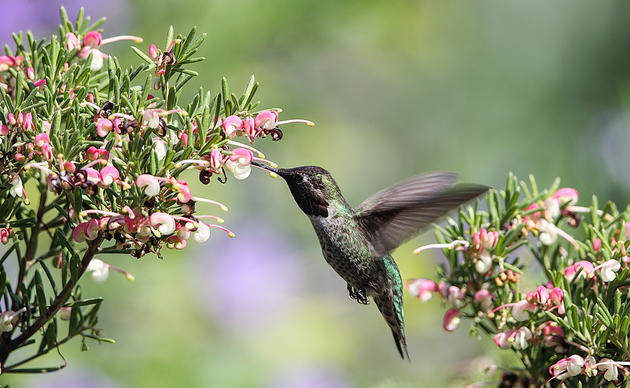Pacific Herring conservation program
Forage fish are the heartbeat of our coast and ocean
Herring are vital to the survival of the California birds that eat them, but herring are in trouble coast-wide. Overfishing, problems at spawning grounds and climate change are making herring less available to birds and other wildlife from Alaska to California. Although herring historically spawned at 13 locations in California, only a small fraction of our coast, about 2%, now has the right conditions to support herring.
But there is hope for herring and for birds. Since 2012 Audubon California has led a campaign to protect and restore herring in California. Fortunately, herring can be responsive to conservation activities and restored to serve as a robust food source for our beloved Flyway birds and dozens of other species of wildlife.
Most herring in California spawn in San Francisco Bay; this resource helps support a large complex of global Important Bird Areas. Audubon California’s Richardson Bay Audubon Center & Sanctuary supports about 80% of all spawning herring in San Francisco Bay, making this an essential site for waterbird feeding and resting, and a site of hemispheric importance to waterbirds.
What is herring?
Pacific herring is a forage fish that serves as an essential prey item for many of the marine birds we care about on the Pacific Flyway: Scoters, Scaup, Harlequin Ducks, Brown Pelicans, Rhinocerous Auklets, Common Murre, Surfbird and more. Herring are also essential for whales, pinnipeds and larger fish such as salmon. Herring and their roe (eggs) are an aggregated, energy-rich source of food for migratory and resident birds on the Pacific Flyway, available in selected locations in bays and inlets such as Puget Sound, Yaquina Bay, Humboldt Bay, and San Francisco Bay. Many species of birds feed preferentially on herring when it is available, and herring “runs” create a feeding frenzy among marine wildlife.
Our Accomplishments
- Successful campaign to reform the commercial herring fishery in California ― In 2013, after two years of science-based policy engagement, state wildlife managers agreed to our requests to freeze the rate of herring harvest in San Francisco Bay; close fishing in assessed areas; and make it legal for fishermen to sell fresh fish to local markets, supporting a higher value product.
- State forage policy ― We worked with a small coalition of NGOs and fishing interest groups to help the state produce a policy on forage species for the state. This historic policy, adopted in 2012, prevents the expansion of fisheries on forage fish such as herring without first accounting for the needs of predators.
- Describing the status of herring and making conservation recommendations ― Our biologists and GIS specialists have produced and presented original analyses on the status and trends of herring on California and the west coast. These findings will support long term stewardship of herring in California and the west coast.
- Raising public awareness of the importance of herring and the unique role of San Francisco Bay ― Our work around herring was featured prominently in the media in early 2013.
- KQED. February 25, 2013. Struggling herring make tiny appearance.
- Bay Nature Online. 2013. The herring are running at Mission bay.
- San Francisco Chronicle. January 24, 2013. Lots of herring hit Bay Area.
Our campaign goals
- Manage commercial fishing ― Herring can support a vibrant commercial fishery, if managed with the precautionary approach needed when fishing on a forage species.
- Steward habitat ― Herring tend to spawn on the same areas of submerged vegetation and rocky shores in bays and estuaries. Those areas need to be identified and protected from degradation and disturbance.
- Encourage the fresh fish market ― Herring is a delicious, locally sourced seafood that supports a commercial fishing economy that is a valued part of our west coast ocean heritage.
- Herring runs capture the public imagination and connect people with the marine environment, birds, and other wildlife.
- Expand to Washington and Oregon ― Work with our partners in these states to use lessons learned in California to improve management of herring in these Flyway states.
Our partners: Oceana, EarthJustice, Pew Environment, California Department of Fish and Wildlife, and commercial herring fishermen.
Our funders: Marisla Foundation, Pew Charitable Trusts
How you can help, right now
Get Audubon CA in Your Inbox
Our newsletter is fun way to get our latest stories and important conservation updates from across the state.
Donate to Audubon
Help secure the future for birds at risk from climate change, habitat loss and other threats. Your support will power our science, education, advocacy and on-the-ground conservation efforts.
HOTSPOT: Flyover of California's Birds and Biodiversity
California is a global biodiversity hotspots, with one of the greatest concentrations of living species on Earth.




